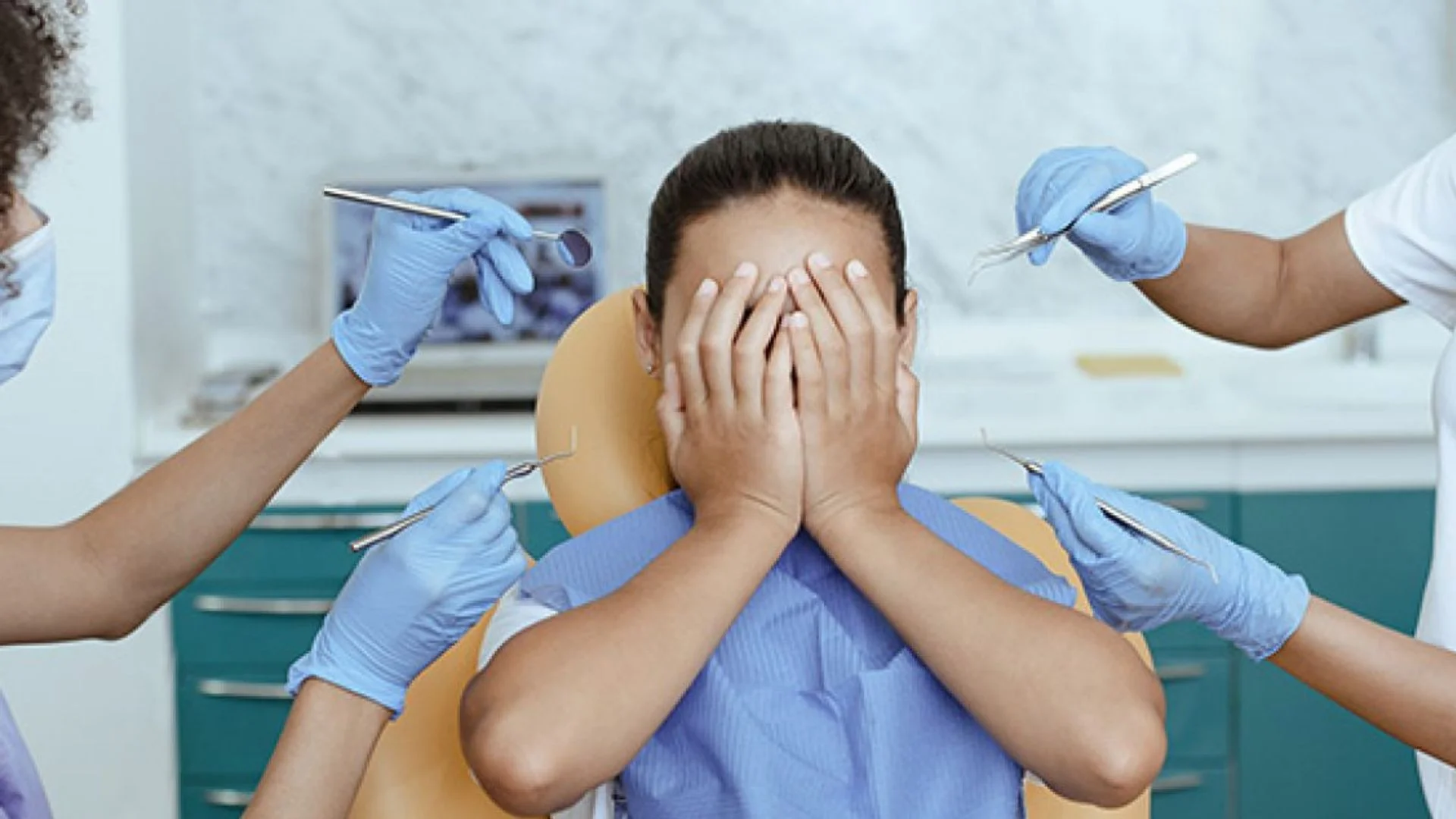Last Updated on: 13th December 2025, 06:54 am
Odontophobia or Dentophobia , also known as dental fear or dental phobia, is an irrational fear or disorder characterized by an intense and persistent fear or panic of dental visits and treatments. This fear can reach a level where people avoid going to the dentist’s office, which can have negative consequences for their oral health.
Phobias to certain activities, products, animals, people or objects can appear at a very early age; when they are not identified and treated, they can generate problems in adulthood with the development of certain behaviors that require management. In some cases, these behaviors are learned from other adults or children. Among these phobias is a visit to the dentist’s office, which is defined as odontophobia.
Dentophobia in children can be due to a bad experience, inherited from their parents or relatives, or simply reflect the fear of the unknown. In this article, we will look at the causes and symptoms and how to handle children with a dental phobia.
Causes of Dentophobia in Children
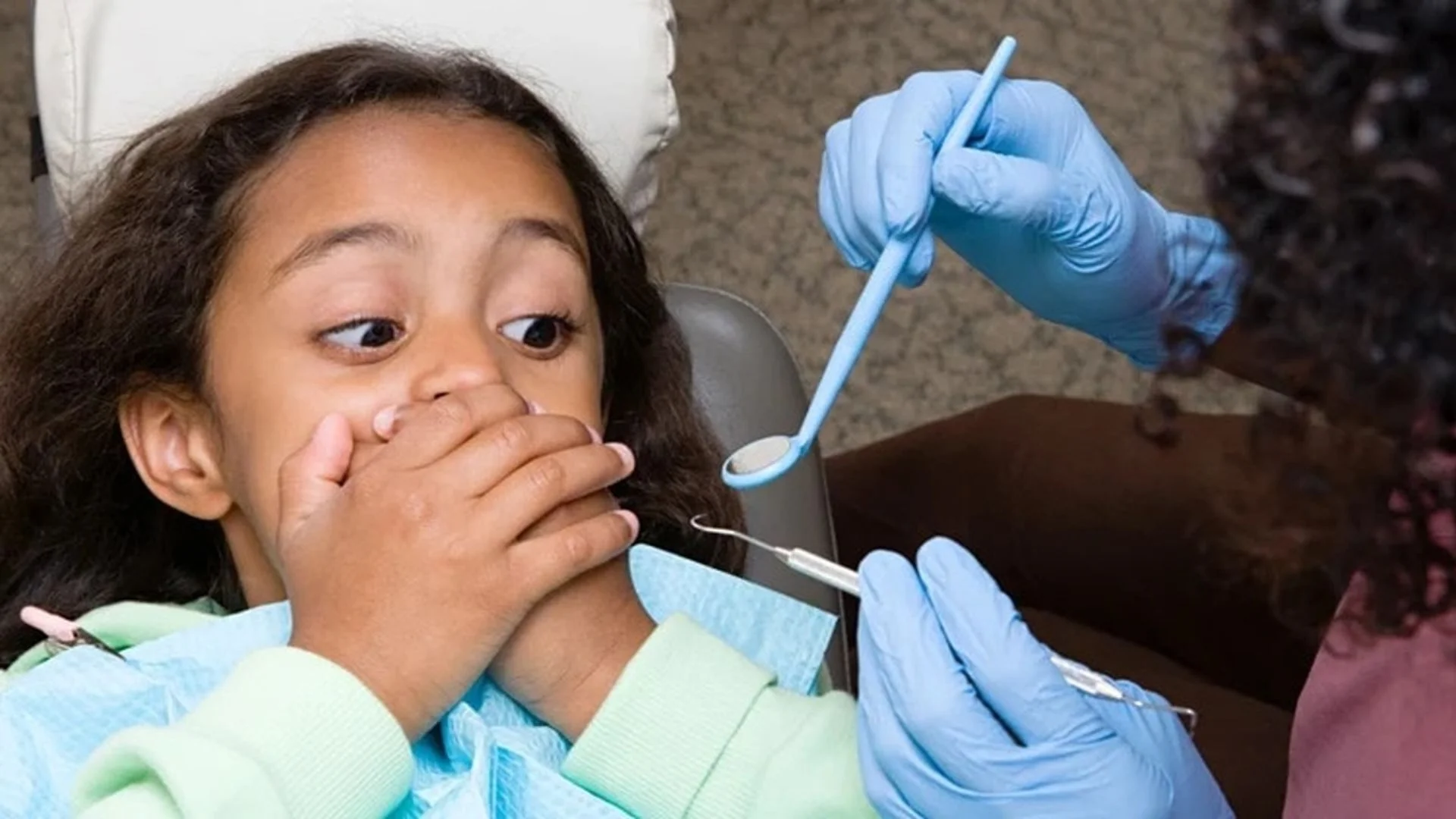
It is important to note that feeling fear is a healthy and perfectly natural emotion, since it is a survival instinct. It is necessary to understand the nature and cause of the child’s phobia for any dental treatment to be successful. Some of the reasons why children present fear of the dentist can be:
1. Fear of the unknown: when children go to a new place, they may feel a certain rejection, fear or dread; so it is very important to transmit a positive and pleasant atmosphere of the dental clinic. We should remember that expressions such as “behave or the dentist will pull out a tooth” or “don’t move or they will prick you and pull out your teeth” are not only inappropriate but also highly detrimental to the psychological development of the child and their positive attitude toward dental treatment.
2. Bad experiences: these can be experienced by the child himself or by his parents and transmitted to him; if the child has had a traumatic scene previously, it can cause an episode of dental fear or a dentophobia. Bear in mind that this fear can be due to their own experiences or experiences transmitted by others.
3. Fear of pain: in some circumstances, children go to the dentist without a problem, until the moment they feel pain. At this moment, an irrational fear of the dentist begins. Another circumstance is that they will not go to the dentist until they have some dental pain, causing invasive dental treatments. As a consequence, these complications increase their fear of the dentist.
4. Parents with a fear of the dentist: It is important not to pass this fear on to children. This applies to all the adults who are part of the child’s life. The way the adult speaks to the dentist can significantly influence the child’s behavior during the appointment and thus affect his or her oral health.
5. Television programs and books often depict the dentist as something frightening: Many TV shows and books focus on dental appointments and procedures. Sometimes, the main character is initially afraid, but the appointment turns out to be better than expected. In other cases, the character experiences a particularly bad visit. Such portrayals can make a child think that all dentists are bad and should be feared.
It has been shown that a great deal of one’s dentophobia begins during childhood.
Signs and Symptoms of Dentophobia in Children
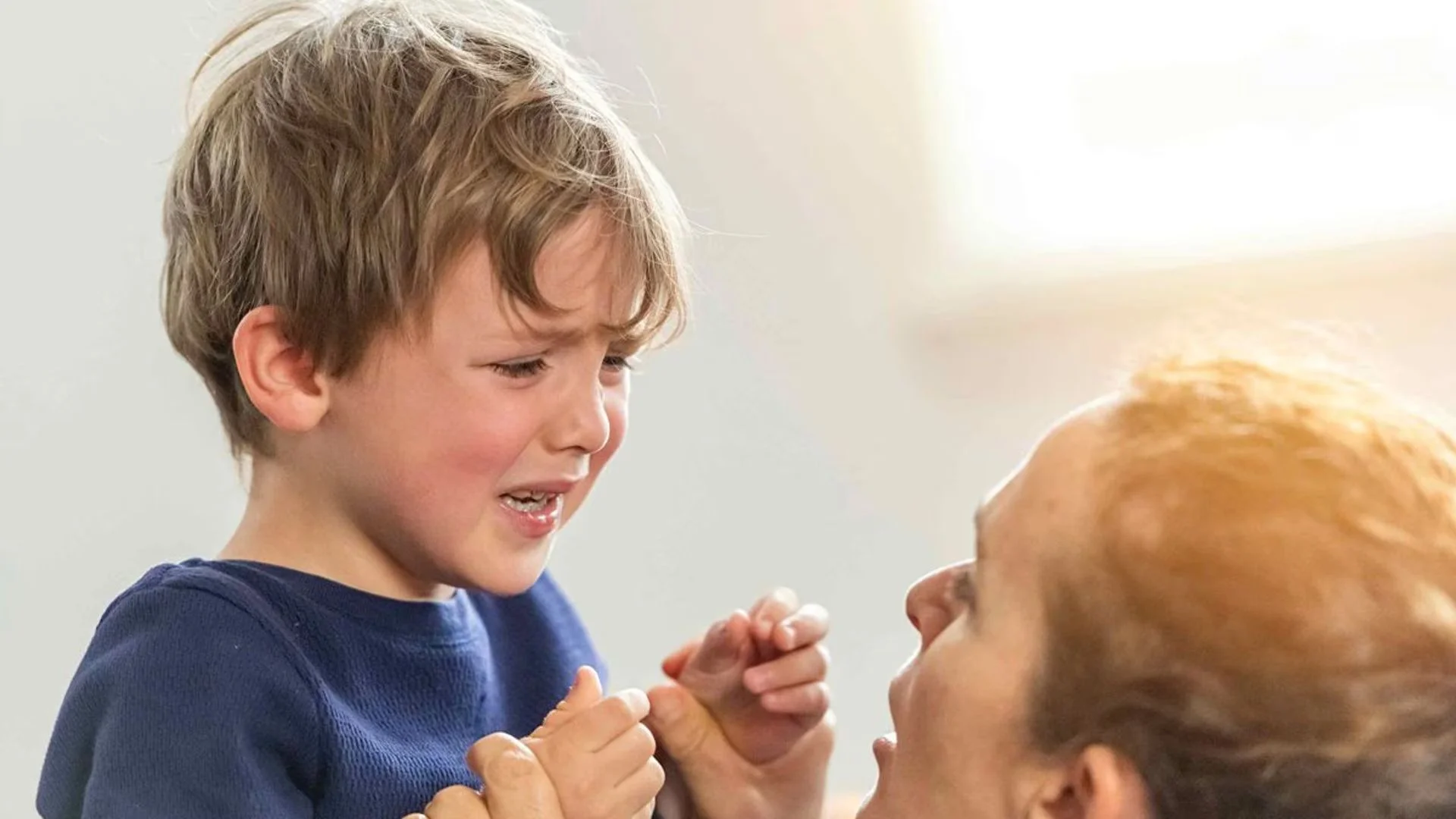
If as adults we already experience fear toward the dentist, in children it is even more present. Some of the symptoms of dentophobia in children are the following:
● Crying when arriving at the dental office
● Hiding behind adults
● Moving to avoid being examined by the dentist
● Getting sick before the consultation
Other signs and symptoms that you might observe in a child before a dental visit or just before entering the dentist’s office include:
● Shortness of breath
● Headaches
● Stomach pain
● Frequent toileting
● Sweating
● Avoidance/ refusal to attend a dentist
● Increased heart rate
● Sleep disturbance
● Inability or refusal to open their mouth
● Feeling on edge
● Gagging
● Feeling sick
● Dry mouth
In general, this fear can occur when the child must undergo more invasive or traumatic dental treatments, such as a dental extraction. Children with a dentophobia may experience symptoms such as tachycardia, sweating, agitated breathing, uncontrollable crying, among others.
Types of Dentophobia in Children
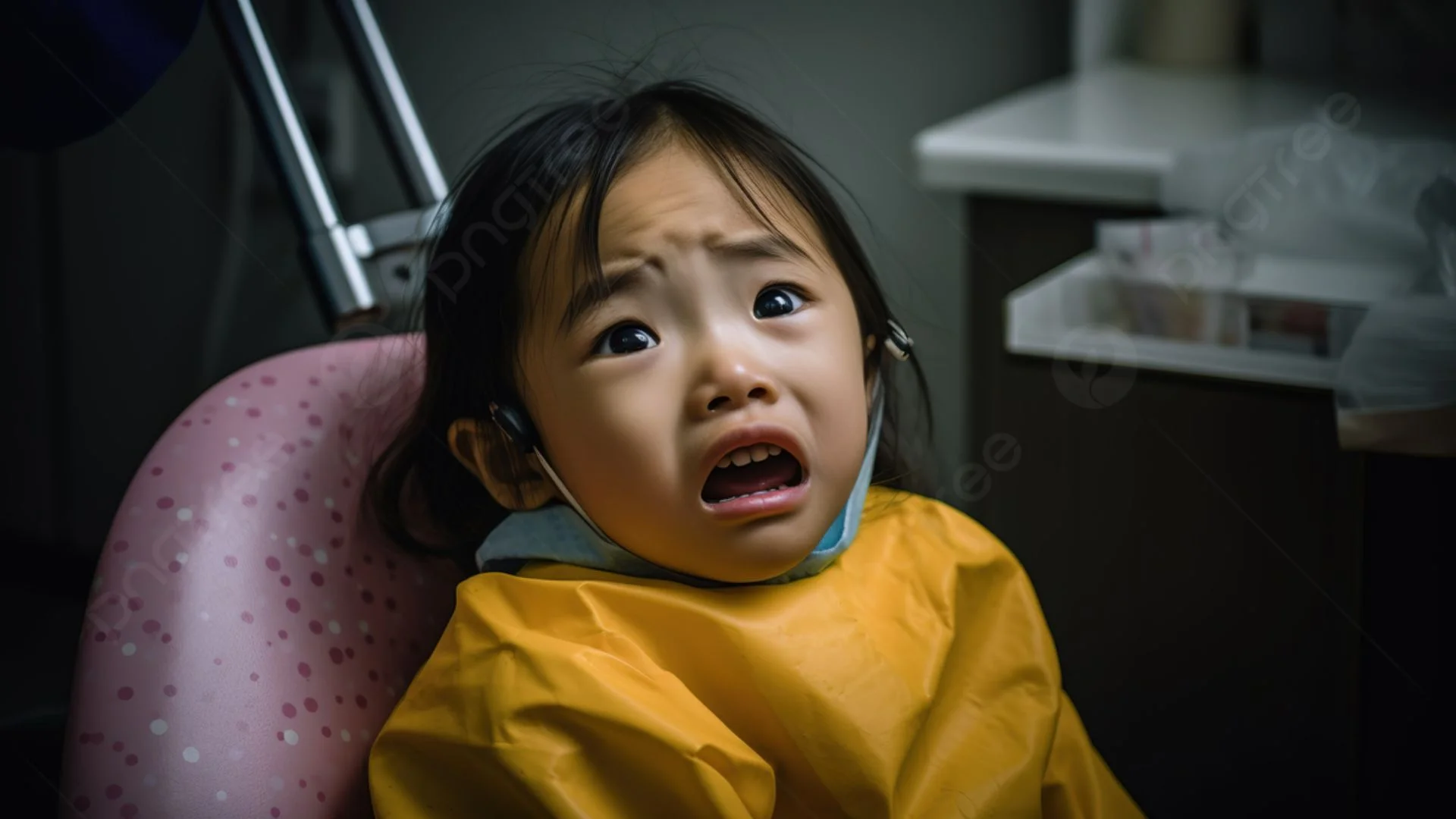
We find various degrees or stages of dental phobias in children. It is wise to differentiate between them since they are treated differently.
● Anxiety: an experience or sensation due to one’s concern or fear of the unknown during the first visit to the dentist.
● Fear: the feeling we experience when we have already encountered situations that we do not like in the dental office, i.e, the fear we have during the second and third visits.
● Dentophobia: a persistent and intense fear, in which children avoid going to the dentist, especially to undergo dental treatment. At this point, we must treat the phobia because it can lead to oral health problems.
Consequences of Dentophobia in Children
The relationship that exists between dental phobia and childhood reinforces the need to prevent this irrational fear. We find the following consequences:
● Dental diseases in adulthood
● A higher rate of dental caries
● Greater association between remembered pain and real or expected pain
● Decrease in routine dental care
● Embarrassment
Severe fear of the dentist frequently leads to poor oral health.Poor oral health can result in:
● Complications related to diabetes
● Tooth decay
● Gum (periodontal) disease
● Heart disease (coronary artery disease)
● Tooth loss
● Pneumonia and respiratory infections
When the patient goes to the dental office after a delay or the onset of a severe condition, the treatments will be more invasive, thus reinforcing the patient’s dental phobia. Therefore, it is recommended to treat the phobia early to avoid future problems.
How to deal with dentophobia in children?
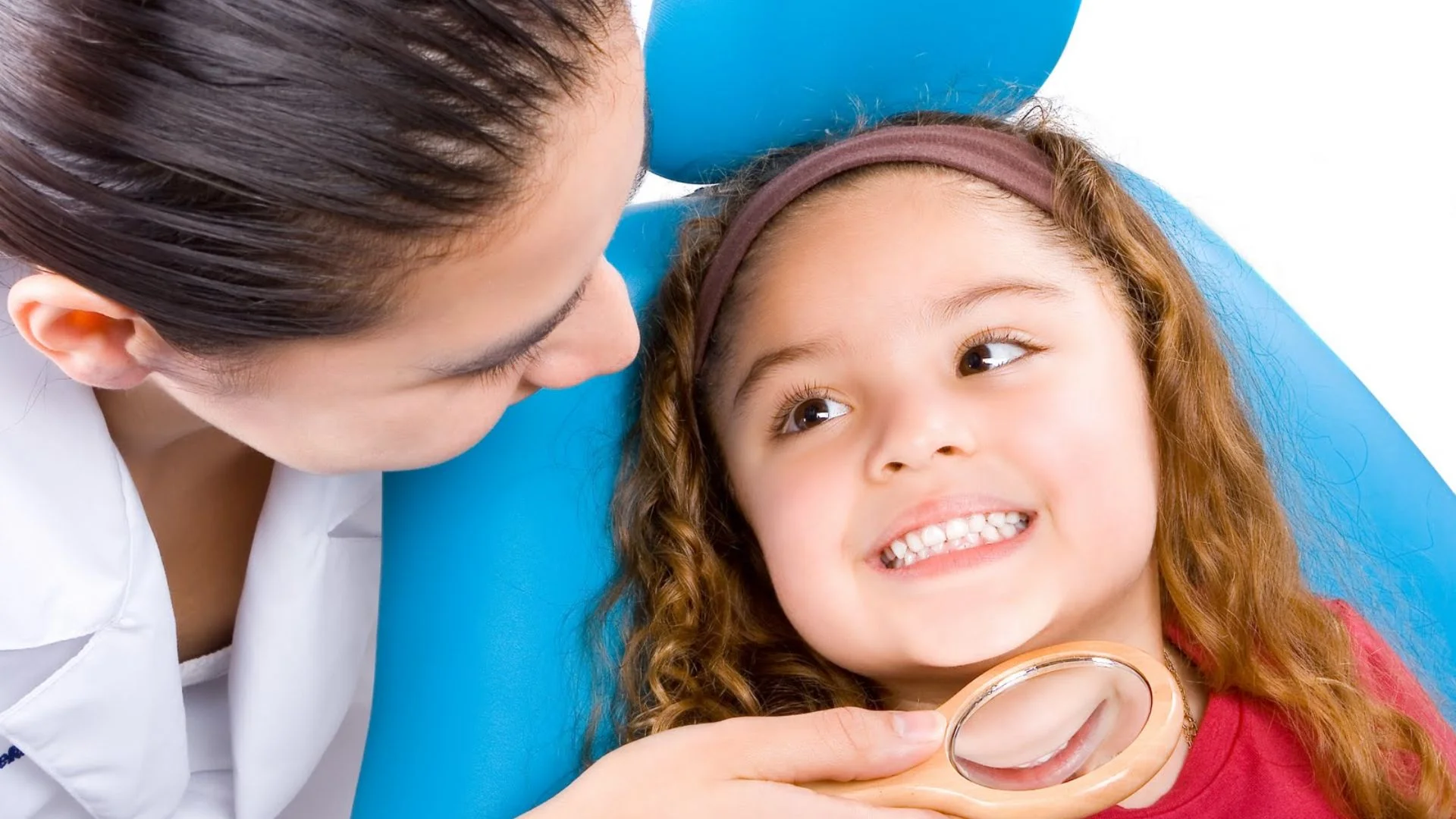
Tips for dealing with dental phobia in children:
● Talk to your child: before going to the dentist’s office, know the reason why your child has a fear of the dentist and learn how to adjust the fear in order to overcome it. Remember to avoid negative or phrases that mention pain.
● Games: it is important to implement activities; the child will feel more comfortable and have a better image of the dentist, decreasing their fear at the time of the visit.
● Good environment: this is done by dentists to achieve the comfort of children in the office; they strive to answer their concerns and encourage them to seek oral care.
● Positive reinforcement: once the dental visit is over, tell the child how well they did and show them how proud you are of their attitude.
● Parents should provide their child with some information about the dentist, the setting, and the steps involved in the visit or treatment.
● Offering details about what the child can expect and what will be required helps reduce anxiety.
● Casually point out the dentist’s location when walking or driving by in a relaxed manner.
● Answer simple questions using age-appropriate language in a matter-of-fact tone. Avoid giving details that may fuel further questions or anxiety and increase the child’s need for reassurance.
● Let the dentist address more specific questions;consider calling ahead to discuss them so the dentist can prepare “child-friendly” answers. Discuss the benefits of having healthy teeth and general oral care. Acknowledge the child’s feelings of worry and let them know that these feelings are understood.
These tips can be applied to those children whose dental phobia is low or moderate; their attitude can be improved with communication and reinforcement. Children with a high level of dental phobia and urgent dental need (where the phobia cannot be treated first with communication and psychological attention), it is recommended to conduct the dental treatments with nitrous oxide, conscious sedation, or general anesthesia.
Conclusions
Dentophobia in children is a significant problem that can affect their long-term oral health. Avoiding negative statements about the dentist and creating a positive environment are crucial to reducing this fear. Parents and dentists should work together to provide positive education about dental care and create a comfortable environment. Games and positive reinforcement can help children feel more confident.
In severe cases, conscious sedation or the use of nitrous oxide may be necessary. Addressing odontophobia or dentophobia from an early age is essential to prevent future dental problems and encourage healthy habits.
Frequently Asked Questions
Why are most little kids afraid of dentists?
Most little kids are afraid of dentists due to a combination of unfamiliarity, fear of pain, and negative portrayals in the media. The dental office, with its strange sounds, unfamiliar instruments, and often sterile environment can be intimidating for young children. Additionally, stories and images from television shows, books, or even the experiences of others can amplify these fears, making the dentist a scary figure.
How can I help my child stop being terrified of the dentist?
To help your child overcome their fear of the dentist, start by explaining the dental visit in simple, positive terms. Familiarize them with the process through books or videos designed for children. Role-playing a visit to the dentist at home can also help. Moreover, choose a pediatric dentist who has experience dealing with anxious children. Make the visit fun by allowing your child to bring a favorite toy or promising a small reward after the appointment. Consistency is key; regular dental visits help normalize the experience.
What strategies can dentists use to reduce anxiety for children during dental appointments?
Dentists use several strategies to reduce anxiety for children during dental appointments. Creating a child-friendly environment with colorful decorations, toys, and a friendly staff makes the office more inviting. Dentists can explain procedures in a non-threatening way, using simple language and sometimes showing the tools and how they work. Distraction techniques, such as letting the child watch a favorite show or listen to music during the procedure, can be effective. Positive reinforcement, like giving small rewards or praise, encourages good behavior and reduces fear.
How do dentists deal with children who are afraid of needles?
Dentists have various methods for dealing with children who are afraid of needles. They might use topical anesthetics to numb the area before the injection, reducing the pain and making the needle less intimidating. Some dentists use distraction techniques, such as engaging the child in conversation or having them focus on something else in the room. Additionally, dentists may use smaller, less noticeable needles and employ a gentle, calming approach to keep the child relaxed. In some cases, sedation or general anesthesia may be an option for particularly anxious children.
What causes a kid to be scared to go to the dentist?
Several factors can cause a child to be afraid of going to the dentist. A previous negative experience, either personally or from stories heard from others, can create fear. The fear of the unknown and not understanding what will happen during the visit also contribute to dental anxiety. The loud noises of dental tools and the sterile smell of the office can be overwhelming for some children. Additionally, parents’ attitudes and anxieties about dental visits influence their child’s perception, making them more likely to be fearful.
Share
References
1. Coxon, J., Hosey, M. & Newton, J. The impact of dental anxiety on the oral health of children aged 5 and 8 years: a regression analysis of the Child Dental Health Survey 2013. Br Dent J 227, 818–822 (2019). https://doi.org/10.1038/s41415-019-0853-y
2. Enright, A., Enright S. (2021). Dental anxiety and phobia – Causes, impacts, and treatment. Dent Oral Maxillofac Res, 7 (1-6). doi: 10.15761/DOMR.1000384. https://www.oatext.com/dental-anxiety-and-phobia-causes-impacts-and-treatment.php
3. Viswanath D., Kumar M., Prabhuji M., (2014). Dental Anxiety, Fear and Phobia in Children.International Journal of Dental Research & Development (IJDRD), 4(1):2250-2386. https://www.researchgate.net/publication/273253908_DENTAL_ANXIETY_FEAR_AND_PHOBIA_IN_CHILDREN
4. Better Health Channel. (Oct, 2021). Dental anxiety and phobia.State Government of Victoria. https://www.betterhealth.vic.gov.au/health/conditionsandtreatments/dental-anxiety-and-phobia
5. Carrillo-Díaz, M., Migueláñez-Medrán, B. C., Nieto-Moraleda, C., Romero-Maroto, M., & González-Olmo, M. J. (2021). How Can We Reduce Dental Fear in Children? The Importance of the First Dental Visit. Children (Basel, Switzerland), 8(12), 1167. https://doi.org/10.3390/children8121167
6. NHS. (n/f). Dental anxiety and dental phobia in children – Information for parents. https://www.royaldevon.nhs.uk/media/q0npcd5u/dental-anxiety-in-children-ap.pdf
-
Nayibe Cubillos M. [Author]
Pharmaceutical Chemestry |Pharmaceutical Process Management | Pharmaceutical Care | Pharmaceutical Services Audit | Pharmaceutical Services Process Consulting | Content Project Manager | SEO Knowledge | Content Writer | Leadership | Scrum Master
View all posts
A healthcare writer with a solid background in pharmaceutical chemistry and a thorough understanding of Colombian regulatory processes and comprehensive sector management, she has significant experience coordinating and leading multidisciplina...


